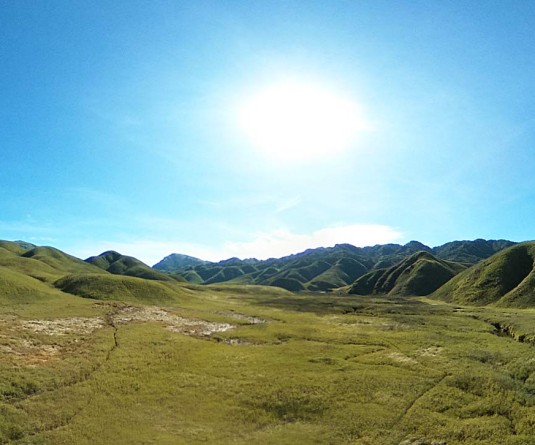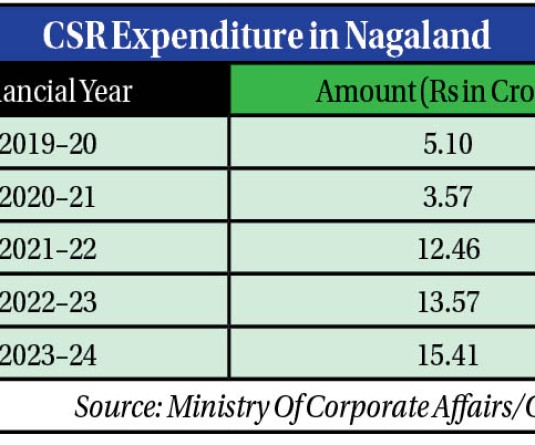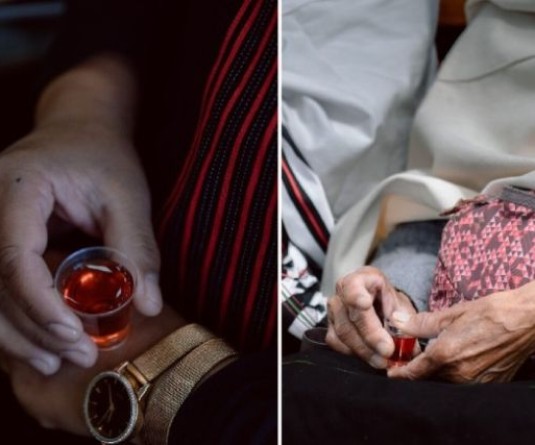Various banana varieties on display at a festival stall.
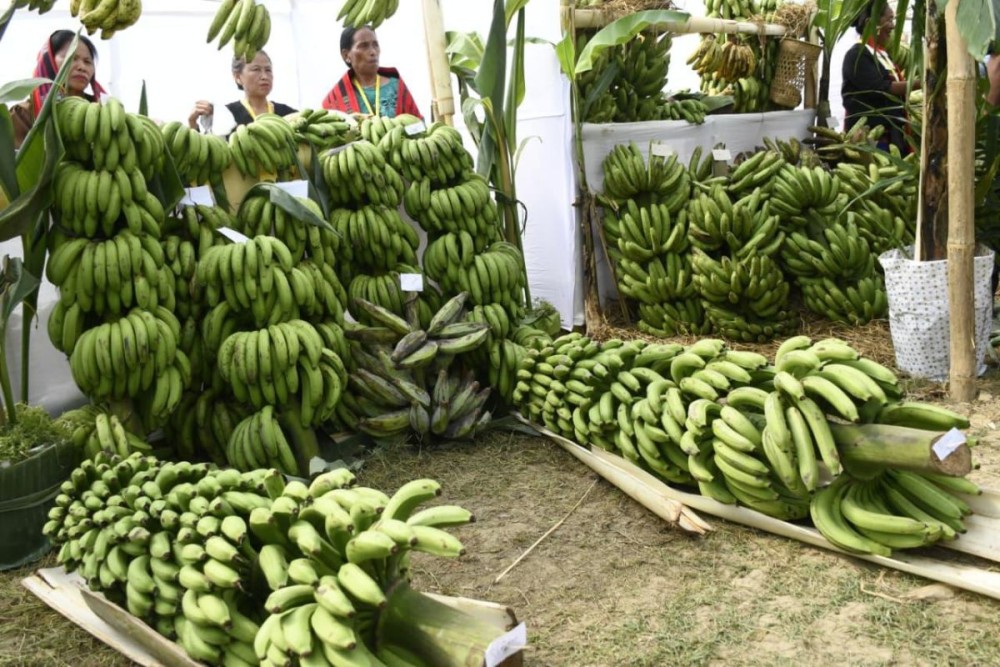
Morung Express News
Wokha | October 22
The first edition of the Banana Festival 2025 was inaugurated today at the Public Ground, Wokha, under the theme “Banana for Food, Fibre and Future.” The three-day festival, organized by the District Planning and Development Board (DPDB), Wokha, in collaboration with Krishi Vigyan Kendra (KVK) Wokha, ICAR, and various state line departments, is a landmark initiative aimed at promoting agricultural innovation, empowering farmers, and strengthening market linkages across Nagaland.
The inaugural ceremony was graced by Deputy Chief Minister and Minister of Planning & Transformation and National Highways, TR Zeliang, as the Special Guest. He was accompanied by Minister of Environment, Forest and Climate Change, CL John; Minister of Women Resource Development, Salhoutuonuo Kruse; and MLA and Advisor to Water Resources, Tongpang Ozukum.
Deputy Chief Minister and Minister of Home & Border Affairs, Yanthungo Patton, served as the Chief Host, while MLA and Advisor for Agriculture, Mhathung Yanthan, and MLA, Y. Mhonbemo Humtsoe, attended as Hosts.
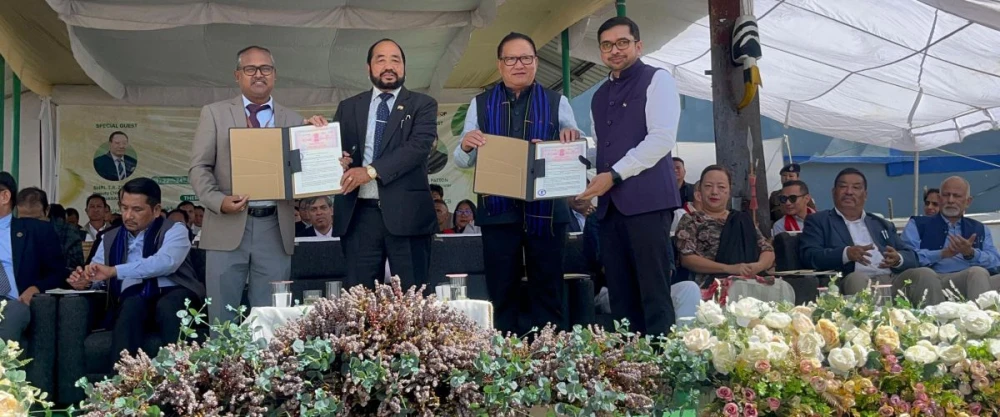
A key highlight of the inaugural programme was the signing and exchange of a Memorandum of Understanding (MoU) between the District Administration Wokha and three national-level research institutions: ICAR–National Research Centre for Banana (NRCB), Tamil Nadu, Institute of Bioresource and Sustainable Development (IBSD), Imphal and CSIR–North East Institute of Science and Technology (NEIST), Jorhat.
The MoU aims to establish long-term partnerships focusing on technological integration, scientific farming, production enhancement, circular economy promotion, joint research, cultivation of medicinal and aromatic crops, farmer training, sustainable practices, and improved market linkages.
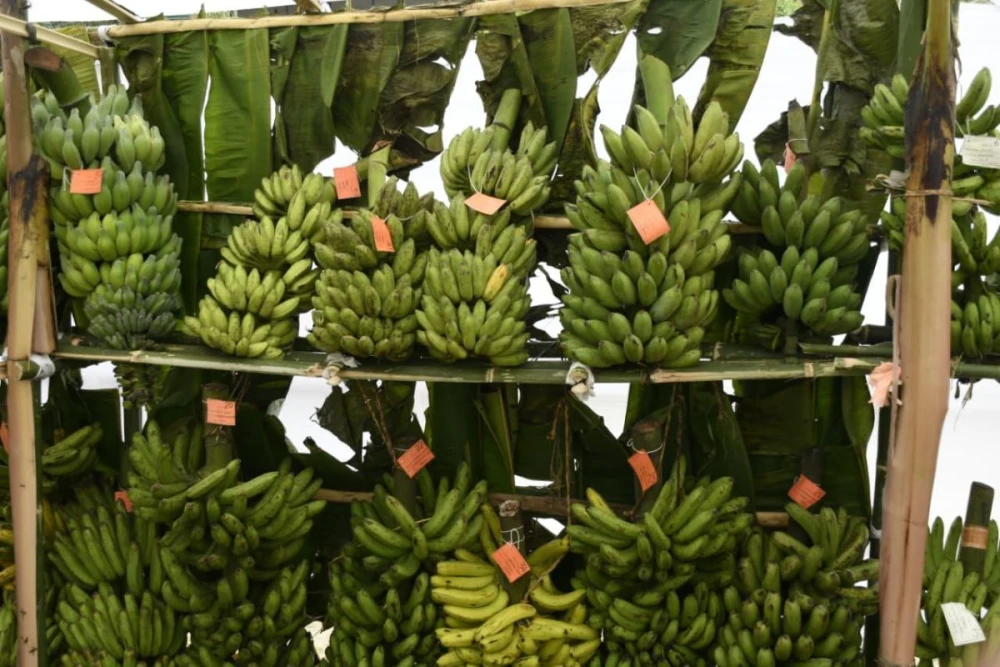
In his address, Deputy Chief Minister TR Zeliang commended the visionary leadership behind the initiative and expressed gratitude to the organising committee for conceptualising such a transformative event in Wokha. He described the Banana Festival as a platform to connect producers with consumers, boost the rural economy, create employment for youth, and promote entrepreneurship.
Zeliang urged government departments to actively participate in advancing agricultural initiatives, not only for Wokha district but across Nagaland. He stressed the importance of sustainable agricultural approaches and praised the collaboration between the state, district, and national institutions, which, he said, “would reach grassroots levels and improve the overall economic structure.”
Encouraging scientists and researchers to offer their best expertise for the district’s development, he emphasised the need to shift towards skill-based and vocational training to generate sustainable income and entrepreneurship. “This festival,” he concluded, “will unlock opportunities not just for the present, but for the future.”
In his address, Deputy Chief Minister and Chief Host, Yanthungo Patton highlighted that the festival symbolises a collective movement to empower farmers through access to technology, training, and market linkages.
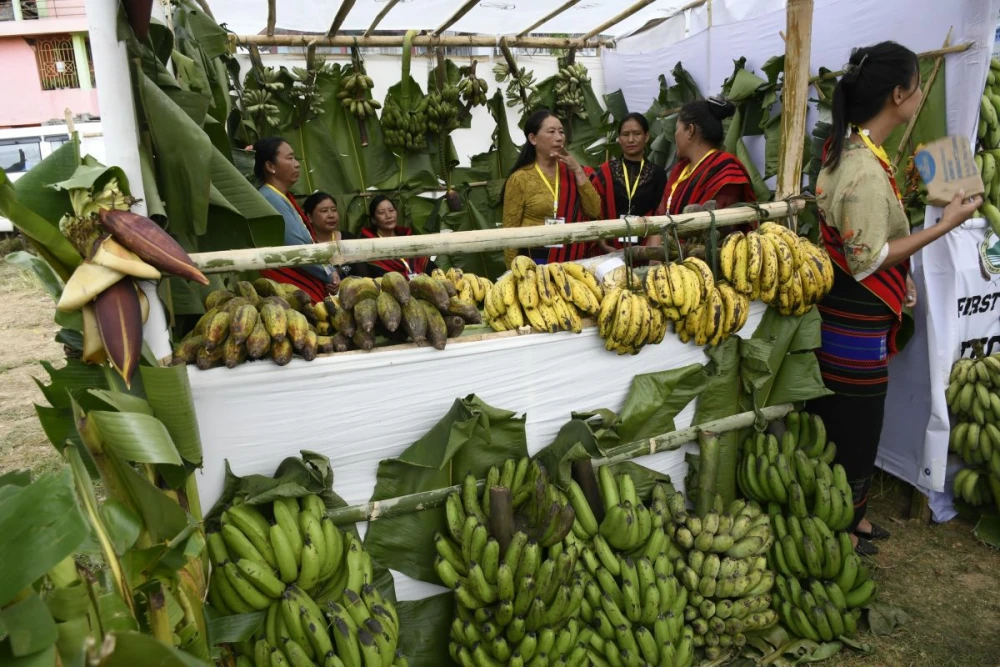
Patton stated, “We are living in a time when agriculture must evolve beyond subsistence. It must connect farmers to technology, markets, and value addition. This festival is for our farmers to equip them with knowledge, resources, and opportunities that ensure sustainable and self-reliant communities.”
Reflecting on India’s national vision, Patton added that initiatives such as this align with Prime Minister Narendra Modi’s goal of building a self-reliant and sustainable India (Atmanirbhar Bharat) by 2047.
Delivering the keynote address, Deputy Commissioner of Wokha, Vineet Kumar, IAS, welcomed all dignitaries, delegates, and guests, acknowledging the efforts made by participants who travelled to Wokha just a day after Diwali. He expressed confidence that the collective effort would create a meaningful and long-lasting impact on the lives of farmers.
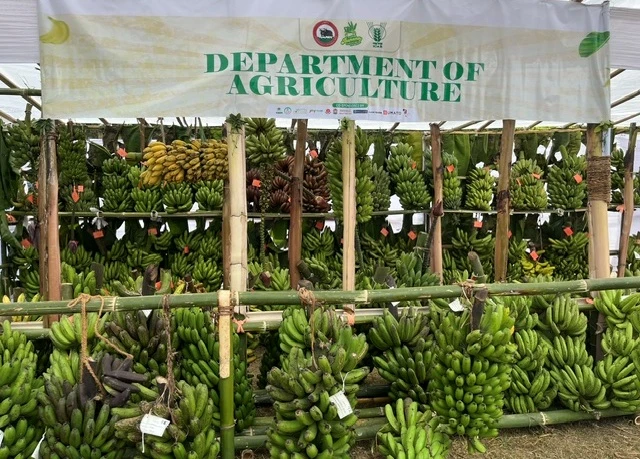
Kumar shared that the idea for the Banana Festival began a year ago when the district administration deliberated on ways to improve farmers’ income through focused product development. After thorough discussions with stakeholders, banana was identified as Wokha’s signature crop due to its favourable soil, agro-climatic conditions, and enterprising farmers.
He stated that Wokha district produces the largest quantity of bananas in Nagaland and that its banana variety is already known across several districts for its distinctive taste and quality.
Highlighting the district’s Five-Year Vision Document for banana development, Kumar said the plan aims to position Wokha as a premium hub for high-quality banana cultivation by promoting sustainable farming, research, and inclusive growth. The vision focuses on enhancing productivity, enabling value addition, and ensuring assured market access.
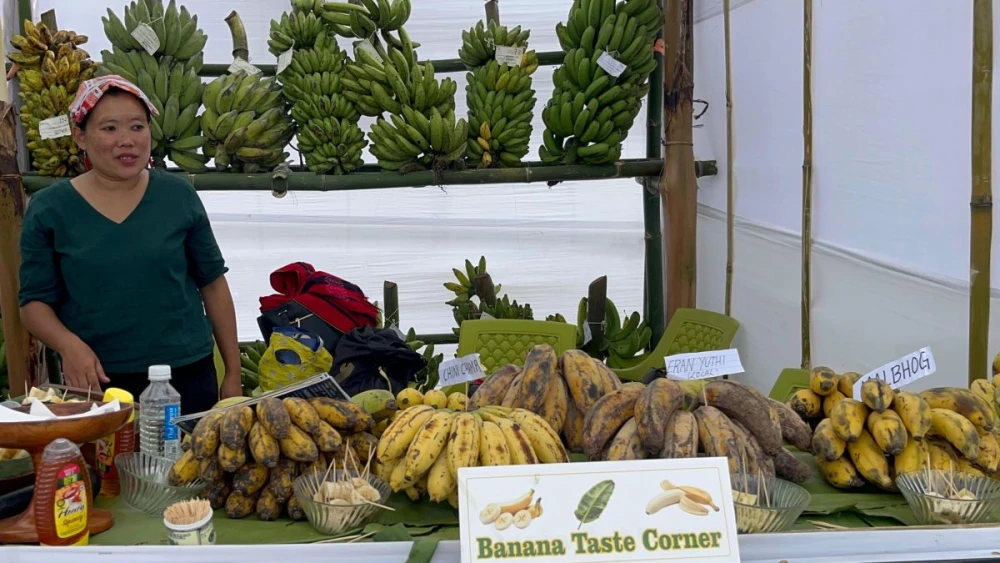
He also announced the launch of Wokha’s local brand ‘Yuthi Delights’, the Banana Growers’ Network, and Banana Chocolate, along with the release of the Lotha Dialect Information Brochure and the KVK-Wokha Information Brochure by the special guest and chief host.
Speaking at the event, Agriculture Production Commissioner V. Shashank Shekhar called the festival a forward-looking initiative addressing farmers’ challenges through collaboration and knowledge sharing. Director of ICAR RC–NEH Region, Dr S. Hazarika, termed it a “symbol of unity in diversity” and urged joint efforts to tackle low productivity and limited adoption of scientific methods. TRIFED Managing Director M. Raja Murugan outlined the organisation’s role in empowering tribal communities through marketing support and sustainable income generation.
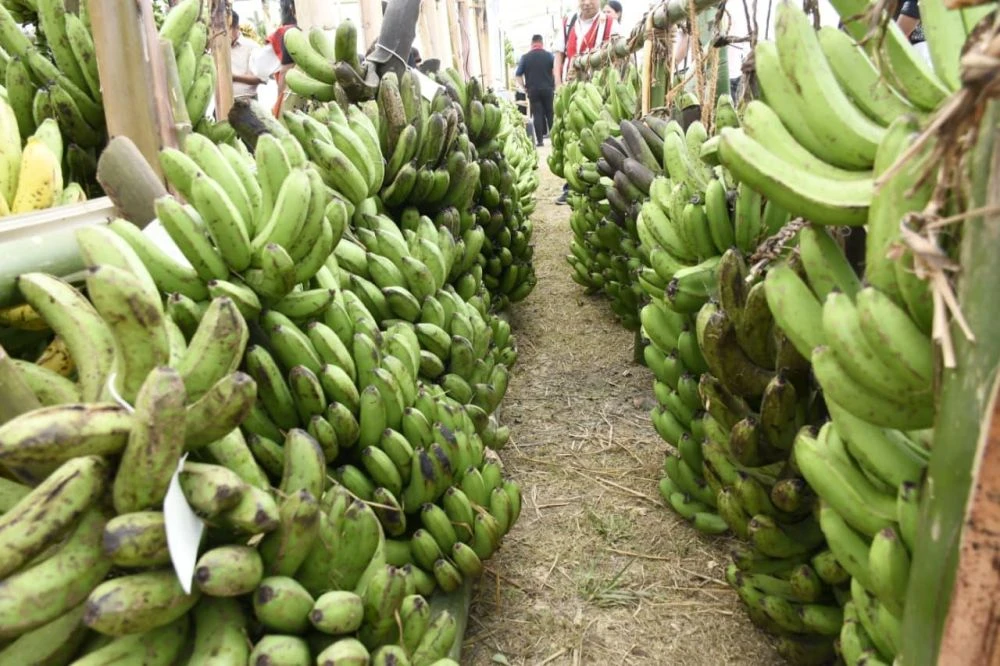
The festival features over 100 exhibition stalls representing villages, government departments, and research institutions, showcasing banana varieties, products, and innovations. Cultural performances, interactive competitions, and a National Workshop on Banana Plantation, Production, Value Addition, and Marketing were held, focusing on bridging research and practice, enhancing farmer capacity, and aligning policy, finance, and market systems.
The three-day festival will continue till October 24, with exhibitions, demonstrations, and interactive sessions on banana cultivation, processing, and product innovation.


